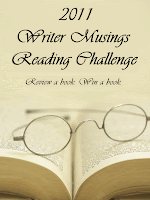Last week, I talked about
how to incorporate feedback from an agent or editor, and today I want to talk about the fine line between holding on too tightly and knowing the feedback isn’t right for your story.
Kill your darlings. People say that over and over again, but one could argue that all of your writing consists of darlings. So, how do you know whether a darling needs to go or stay? That’s a tough call. But there are ways to figure it out.
The first step is to figure out what kind of person you are. Are you resistant to change? Are you easily influenced? Are you easily overwhelmed? Knowing this will help you tremendously because it will affect your strategy.
Resistant To Change
If this is you, then the revision process can be a complete nightmare for your critique partners. Why? If you constantly resist input, they’re going to wonder why the heck you bothered to ask them to critique your work. One who is resistant to change can easily make himself believe that he’s holding on to the key elements of his story, when they may not actually be key elements. But how do you figure out the difference?
One way is to make a list of every single issue raised in your feedback, even the ones you don’t agree with. Then, take each issue one at a time and experiment with it. What happens to the story if you make this change? Is it better or worse? Or, what happens if you add a few tweaks to this change? Then what? I’ve discovered more revision gems this way than I can count. But if you don’t try, you’ll never know. So, give it a try, and you might surprise yourself.
Easily Influenced
If this is you, then I think you have the hardest time with revision than anyone else, because it’s easy to see the merit in other people’s comments. That leads to incorporating those ideas and suggestions in your story, even if they don’t fit. Then you end up with Frankenstein’s monster, and, eventually, the whole project will likely be abandoned. How do you keep this from happening?
Again, make a list of all the comments. Instead of experimenting with them with actual writing, just think about each issue one at a time, taking it through your story from start to finish. Does it affect the setting? Does it affect how the character views certain things? Are these better or worse for your story? It’s very important that you
do not start revising right away. Instead, let your mind play with these ideas and see where they fall.
Easily Overwhelmed
I think most people fall into this category, especially when you’ve got a group of people giving you feedback. Or, if you get some suggestions from an agent or editor, you can easily feel overwhelmed because of the potential for a connection. But there are ways to deal with it.
Make a list of everything, but not in the traditional way. You want to deal with each issue individually, so make your list such that you can only see one thing at a time. You could use index cards, for example, or use another sheet of paper to cover the rest of the list so you can only see one new thing at a time. Then, deal with only that issue. When you know
for sure whether you should keep or discard it, move on to the next. Keep doing this until you reach the end, and don’t worry about how long it takes to get there.
There is another thing you should do regardless of what kind of person you are, and that is…
SLEEP ON IT
After you’ve made your list, set it aside and get a good night’s sleep. Or a week. Or a even a month. When you’re not actively thinking about the list, that’s when you should return to it because that’s when your brain will be the most objective. You’ll be able to see things that you probably wouldn’t have when it was all fresh. And, any emotion associated with the feedback will have had a chance to settle, and you can better assess what’s right for your story.
Really, though, it all comes down to you as an individual. The only way you’re going to figure out the best way to deal with feedback is to experiment with various systems and see what feels right. If you haven’t done this yet, get to it. :)



























